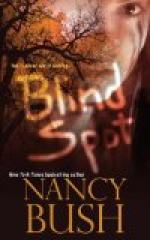The young man swallowed his drink at a gulp, the other picked his up and sipped it. Again he made the indication. The youth dropped his hand upon the table, a pale blue light followed the movement of his fingers. The older man pointed. So that was their contention? A jewel? After all our phantom was material enough to desire possession; his solicitude was calmness, but for all that aggression. I could sense a battle, but the young man turned the jewel to the palm side of his fingers; he shook his head.
The Rhamda drew up. For a moment he waited. Was it for surrender? Once he started to speak, but was cut short by the other. For all of his weakness there was spirit to the young man. He even laughed. The Rhamda drew out a watch. He held up two fingers. I heard Hobart mumble.
“Two minutes. Well, I’m betting on the young one. Too much soul. He’s not dead; just weary.”
He was right. At exactly one hundred and twenty seconds the Rhamda closed his watch. He spoke something. Again the young man laughed. He lit a cigarette; from the flicker and jerk of the flame he was trembling. But he was still emphatic. The other rose from the table, walked down the aisle and out of the building. The youth spread out both arms and dropped his head upon the table.
It was a little drama enacted almost in silence. Hobart and I exchanged glances. The mere glimpse of the Rhamda had brought us both back to the Blind Spot. Was there any connection? Who was the young man with the life sapped out? I had a recollection of a face strangely familiar. Hobart interrupted my thoughts.
“I’d give just about one leg for the gist of that conversation. That was the Rhamda; but who is the other ghost?”
“Do you think it has to do with the Blind Spot?”
“I don’t think,” averred Hobart. “I know. Wonder what’s the time.” He glanced at his watch. “Eleven thirty.”
Just here the young man at the table raised up his head. The cigarette was still between his fingers; he puffed lamely for a minute, taking a dull note of his surroundings. In the well of gaiety and laughter coming from all parts of the room his actions were out of place. He seemed dazed; unable to pull himself together. Suddenly he looked at us. He started.
“He certainly knows us,” I said. “I wonder—by George, he’s coming over.”
Even his step was feeble. There was exertion about every move of his body, the wanness and effort of vanished vitality; he balanced himself carefully. Slowly, slowly, line by line his features became familiar, the underlines of another, the ghost of one departed. At first I could not place him. He held himself up for breath. Who was he? Then it suddenly came to me—back to the old days at college—an athlete, one of the best of fellows, one of the sturdiest of men! He had come to this!
Hobart was before me.
“By all the things that are holy!” he exclaimed. “Chick Watson! Here, have a seat. In the name of Heavens, Chick! What on earth—”




